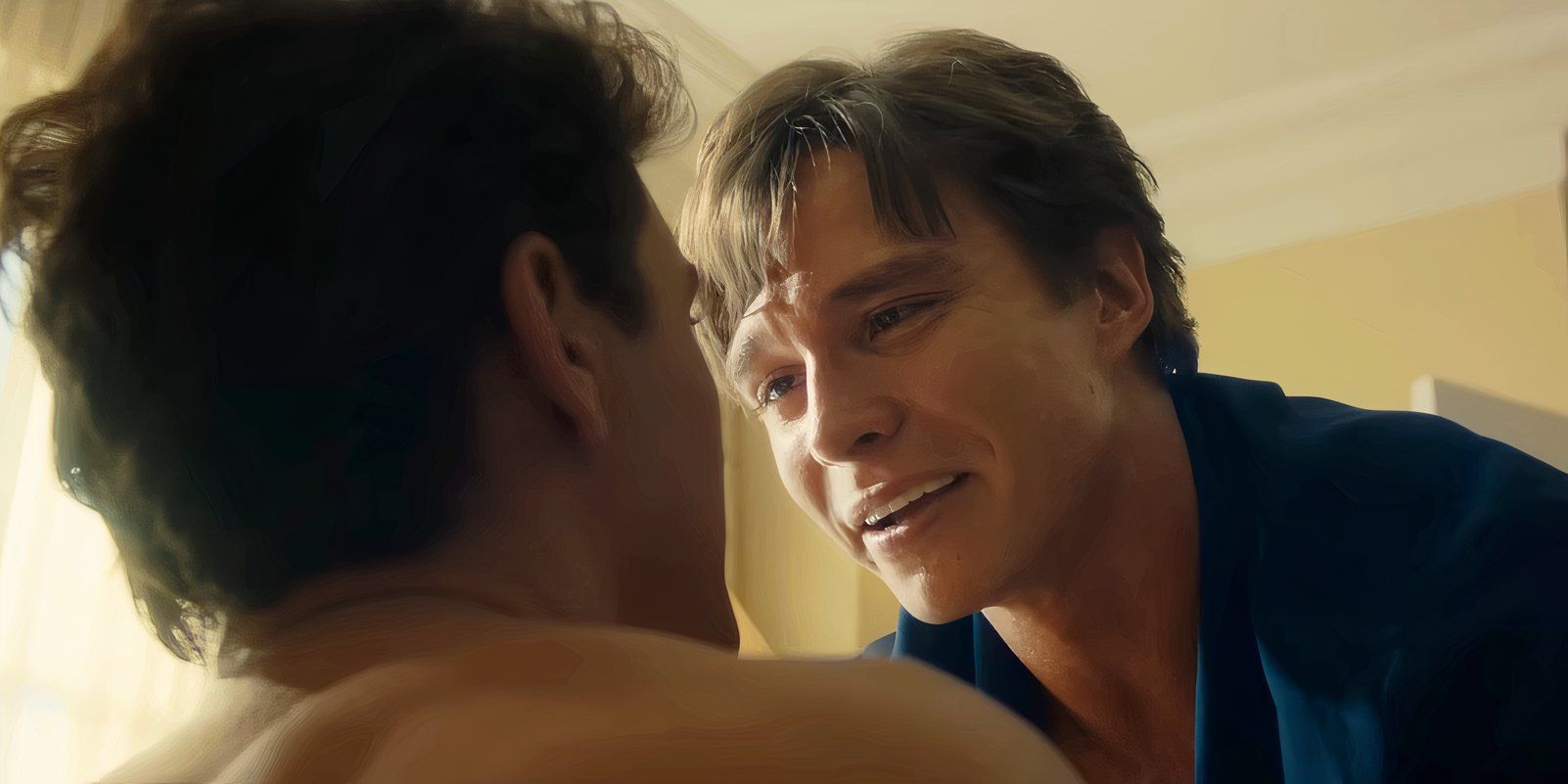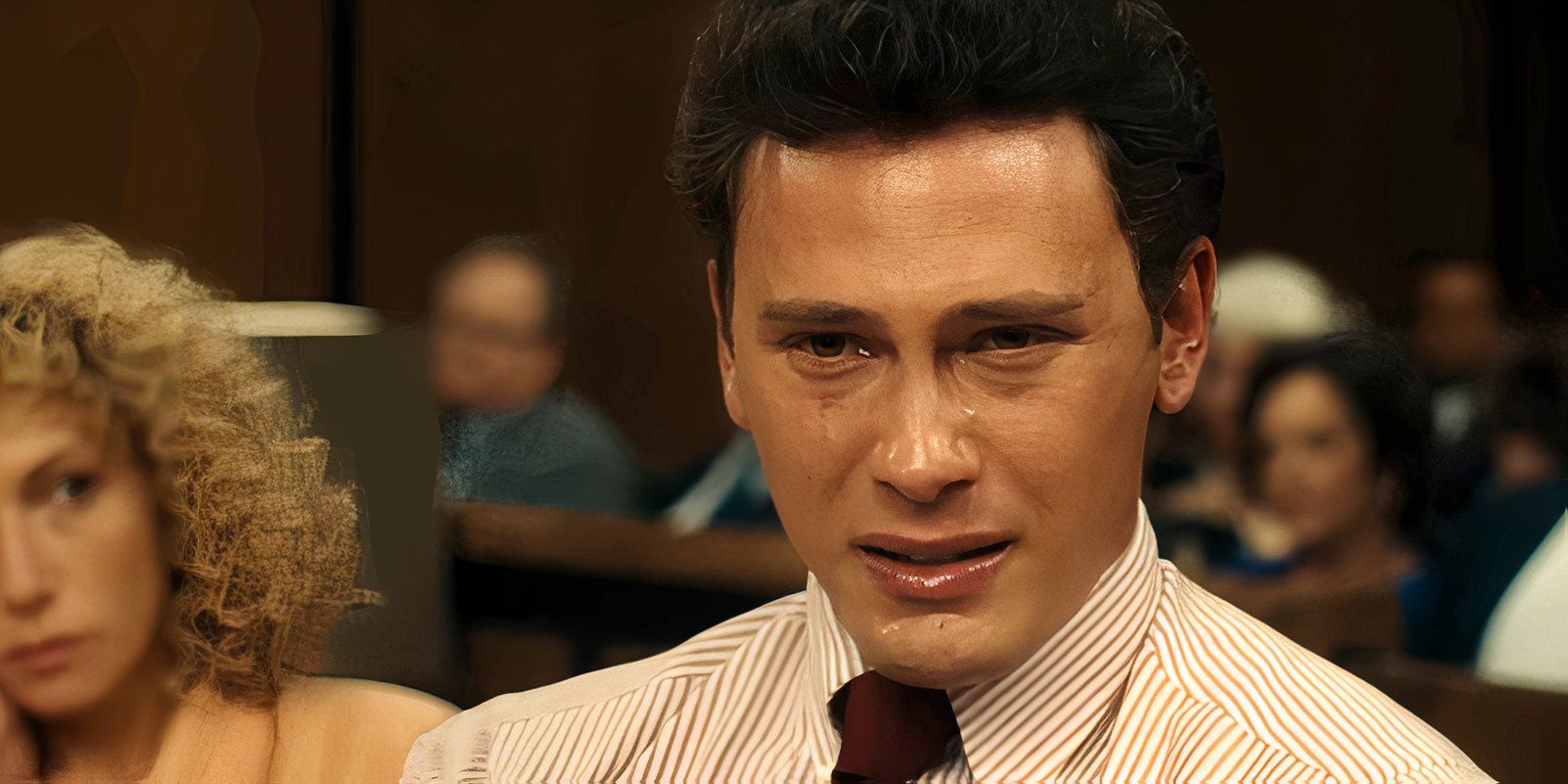
Ryan Murphy is back in the true crime sphere with Monsters: The Lyle and Erik Menendez Story, and yet, he hasn’t learned any lessons from the missteps of the past. The show is the second installment in Murphy and Ian Brennan’s new anthology franchise following 2022’s Dahmer. However, unlike the former’s American Crime Story, which has seen anywhere from generally positive reviews to critical acclaim, Monster started off on rocky ground with a polarized response to Dahmer, and The Lyle and Erik Menendez Story is even more problematic.
Monsters: The Lyle and Erik Menendez Story chronicles the infamous story of the titular brothers who, in 1989, murdered their parents, José, an executive at RCA Records and CEO of Live Entertainment, and Mary Louise “Kitty”, a housewife who struggles with mental health issues. The show follows the two as they initially try to get away with the murders, despite Erik being racked with guilt over it. They’re eventually arrested and put through two trials, in which they describe the sexual and emotional abuse both their parents put them through, calling the killings self-defense out of fear for their lives.
Monsters Can’t Decide Who The Real Villain Is
The Inconsistent Portrait Of Its Characters Make It Hard To Sympathize With Anyone
Arguably one of the two biggest problems throughout The Lyle and Erik Menendez Story‘s nine-episode season is just how inconsistent it depicts the titular brothers. At the show’s start, it’s clear Nicholas Alexander Chavez’s Lyle is the more hotheaded and impulsive sibling, frequently berating his parents and those around him with a sense of entitlement. Cooper Koch’s Erik, on the other hand, is shown as being similar to his brother, though also far more in tune with his emotions, even if not healthily processing them.
Even still, Monsters can never actually land on whether the Menendez brothers are villains or victims.
Once the actual murders happen is where the show’s depiction of the brothers begins to go off the rails. As Lyle and Erik share their stories with their defense attorney, Ari Graynor’s Leslie, Monsters seeks to paint a somewhat sympathetic portrayal of them by showing just how damaged they were from the abuse they alleged against their parents, and how it also impacted their relationship with each other. This is no more true than in episode 5, “The Hurt Man”, a 35-minute one-shot episode of Erik detailing his father’s abuse to Leslie in a prison interview room.
Even still, Monsters can never actually land on whether the Menendez brothers are villains or victims. Following their arrest, Lyle is frequently shown attempting to capitalize on the situation with plans for a book and a movie and acquiring donations from supporters to maintain their wealth should they get out of prison. Erik, on the other hand, is shown still being haunted by the crime, unable to eat, and consistently fearing for his life.
Regardless of whether one believes the brothers’ real-life claims of abuse and self-defense in killing their parents, Monsters does the Menendezes no favor in the eyes of viewers with just how all over the map Lyle and Erik’s behavior is throughout the show. Potentially heartbreaking moments of emotional revelations are quickly undermined as they scheme how to get out of prison and present themselves as innocent to the jury. At the same time, the reflections of their parents lack impact, as we’re subsequently shown in flashbacks how the brothers act like spoiled brats to them before the murders.
This is almost no more obvious than in how the show depicts José and Kitty’s murders. Occurring in the premiere, yet frequently being flashed back to across the season, Monsters comes right up to the line of glorifying their deaths, showing in gruesome detail the multiple shotgun blasts the brothers put into their parents, including shooting off part of Kitty’s hand. And yet, even as the parents’ abuse is depicted, the fact there is a full origin story episode attempting to paint them in a positive light further blurs the line between victim and villain.
The Menendez Brother’s Claims Of Abuse Are Marred By Lack Of Compassion
Murphy’s Flair For Salacious Storytelling Is Gross & Hollow

This inconsistent portrayal of the brothers is made all the more troublesome by how insensitively Monsters: The Lyle and Erik Menendez Story‘s handles their claims of sexual abuse. The aforementioned episode 5 does feel like a fitting confrontation of the real trauma this kind of abuse can have on anyone, avoiding any kind of external distractions by keeping the camera solely situated on Erik as he lays out every single thing his father did to him from the time he was 6 up until the murders.
Monsters further feels out-of-date by putting out a blanket portrait of victims being liars.
Despite this attempt at meaningful exploration, Murphy’s flair for a salacious story and showing arguments on both sides of the case make this element feel hollow. Lyle and Erik are frequently painted in a homoerotic light with each other, leaving it unclear how we’re meant to feel about their relationship. Between party scenes of the brothers grinding and nearly kissing one another to montages of frequently being nearly nude around each other, Murphy and Brennan can never quite decide whether to glorify the incest or paint it as a negative effect that came from Lyle’s alleged abuse of his brother.
This becomes even more problematic in the second half of the show as Monsters paints José and Kitty in a more sympathetic light, exploring how he was also abused by his own parents, which led to him continuing the cycle with Lyle and Erik. Because of an event in his life, he finally wanted to change. Regardless of what occurred, by attempting to paint José as sympathetically as Lyle and Erik, the series undermines the emotions we’re meant to feel as we watch them cite his abuse as the main factor for their motive in killing him.
Even worse is how the show explores the jury’s decision-making during Lyle and Erik’s trials. By giving multiple characters, including Nathan Lane’s Dominick Dunne, a platform to express their doubts of the brothers’ claims, Monsters further feels out-of-date by putting out a blanket portrait of victims being liars. It’s an inarguable fact that the Menendez brothers murdered their parents, and by showing them through such an inconsistent lens, those who have actually lived through this kind of abuse and watch the series are likely to feel scared to expose their abusers because they could be viewed as liars.
Monsters’ Cast Is The Only Saving Grace Of The Show
Every Performer Does Their Best To Elevate The Material

While the show may never be able to land on an appropriate rhythm or stance for its themes, there is no denying that Monsters‘ cast is at the top of their games here. Chavez and Koch are certainly doing their best to capture how the show wants to depict the two, with Koch, in particular, expertly capturing Erik’s emotional turmoil following the murder, while Chavez plays the hotheaded Lyle with aplomb.
Monsters: The Lyle and Erik Menendez Story is a thoroughly exploitative and repetitive slog to get through.
Though not the focus of the piece, though, Javier Bardem is arguably the standout performer as their father, José. In his darker, abusive moments, the Oscar winner is absolutely terrifying, whether it be delivering a menacing glare toward his sons, or outright berating them for their actions. In his quieter moments, Bardem also nicely embodies the quiet hardship the Menendez patriarch endured when attempting to confront his own past trauma and rebuild his family for the better.
But even the cast’s best efforts fail to elevate the material. Monsters: The Lyle and Erik Menendez Story is a thoroughly exploitative and repetitive slog to get through. Even beyond the titular duo, Murphy and Brennan’s spotlight on the grief Dunne felt over the similarly infamous murder of his daughter, Poltergeist actor Dominique Dunne, devolves from an emotional chronicling of a young star taken from the world too soon to a gross depiction of her death.
With Murphy and Brennan currently developing an Ed Gein-focused Monster season 3, it’s time for them to rein in their flair for the dramatic and recognize some true stories need to be handled with care.
Monsters: The Lyle and Erik Menendez Story is now streaming on Netflix.





